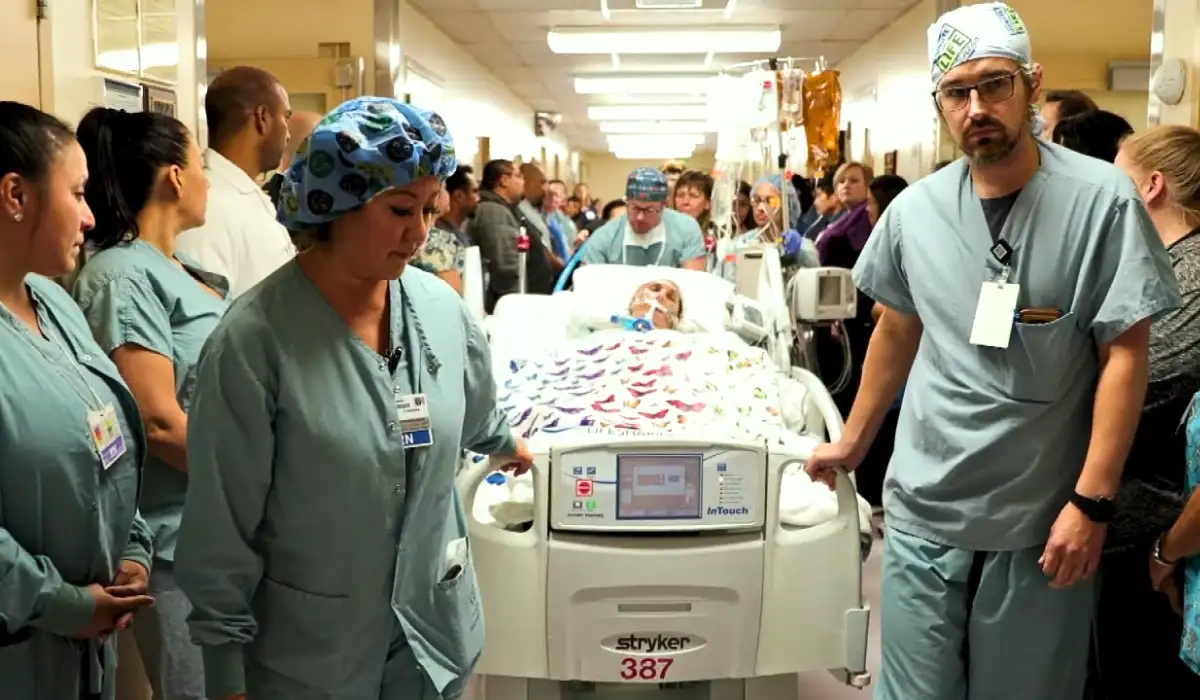In the face of unimaginable loss, an honor walk offers a glimmer of hope and a moment of profound respect. This ceremonial tribute honors organ donors and their families during one of the most difficult times in their lives. In this blog post, we will explore the concept of honor walks, delve into their emotional impact, and discover how they have become a symbol of gratitude and support in the world of organ donation.
Key Takeaways
- An honor walk is a ceremonial tribute that honors organ donors and their families in hospitals.
- Honor walks provide emotional support and comfort to grieving families and symbolize hope and compassion.
- These ceremonies have helped raise awareness about organ donation and inspire others to become donors.
Honor Walks
An honor walk is a solemn and dignified event that takes place in hospitals when a patient who has chosen to be an organ donor is transferred to the operating room for organ retrieval. During this ceremony, hospital staff members line the hallways, forming a corridor of respect and gratitude. As the donor is wheeled through the hallway, staff members may clap, bow their heads, or offer words of support to the family.
The purpose of an honor walk is twofold: to show respect and gratitude to the donor for their selfless decision to give the gift of life, and to provide support and comfort to the grieving family during an incredibly difficult time. It is a way for the hospital community to come together and acknowledge the profound impact of the donor’s choice.
The Emotional Impact
Honor walks have a profound emotional impact on everyone involved. For the donor’s family, seeing the outpouring of support and respect from hospital staff can provide a sense of comfort and validation during a time of immense grief. The honor walk helped many families feel that recognizing and appreciating their loved one’s decision to be an organ donor.
Hospital staff members who participate in honor walks often describe feeling a sense of unity and purpose. They see firsthand the impact of organ donation and feel privileged to be a part of such a meaningful ceremony.
Even strangers who witness an honor walk in passing have reported feeling moved and inspired by the display of compassion and respect.
The Symbolism Behind An Honor Walk
An honor walk is rich in symbolism. The act of walking through a corridor filled with supportive individuals represents the donor’s final journey and the legacy they leave behind. It is a powerful visual representation of the donor’s transition from this life to the next, and the impact their decision will have on the lives of others.
The ceremony also symbolizes hope and the gift of life. Each honor walk represents the potential for multiple lives to be saved or improved through organ donation. It is a reminder that even in the darkest of times, there is still the possibility for light and new beginnings.
The Impact on Organ Donation Awareness
Honor walks have played a significant role in raising awareness about the importance of organ donation. By publicly recognizing and celebrating the selfless act of organ donors, these ceremonies have helped to normalize and destigmatize the concept of organ donation.
Many hospitals have reported an increase in organ donor registration following the implementation of honor walks. The ceremonies serve as a powerful reminder of the life-saving impact of organ donation and inspire others to consider becoming donors themselves.
According to the U.S. Department of Health and Human Services, “Over 100,000 people are waiting for a life-saving organ transplant. Every 9 minutes, another person is added to the national transplant waiting list. Honor walks help raise awareness about the critical need for more organ donors.”
Also Read: Can A Hernia Heal Itself? Exploring The Possibilities
Conclusion
Honor walks are a poignant and meaningful way to honor organ donors and their families. These ceremonies provide emotional support, symbolize hope and compassion, and have helped to raise awareness about the importance of organ donation. By taking a moment to recognize and celebrate the selfless act of organ donors, we can help to create a culture of gratitude and support for this life-saving choice.
If the concept of honor walks moves you, consider learning more about organ donation and registering yourself as a donor. As the U.S. Health Resources & Services Administration states, “One donor can save up to 8 lives through organ donation and enhance many more through tissue donation.” By choosing to be an organ donor, you have the power to leave a lasting legacy of hope and generosity.
FAQ
Honor walks are usually brief, lasting only a few minutes. The focus is on creating a meaningful and respectful moment to honor the donor and their family.
Yes, family members are often encouraged to participate in honor walks if they feel comfortable doing so. Some families choose to walk alongside their loved ones, while others prefer to observe the ceremony.
While honor walks are becoming increasingly common, not all hospitals currently practice them. However, many hospitals are recognizing the value of these ceremonies and are working to implement them as part of their organ donation protocols.
You can contact your local hospital’s organ donation coordinator or administrative office to inquire about their policies and practices regarding honor walks. They should be able to provide you with information about whether honor walks are currently performed at their facility.

